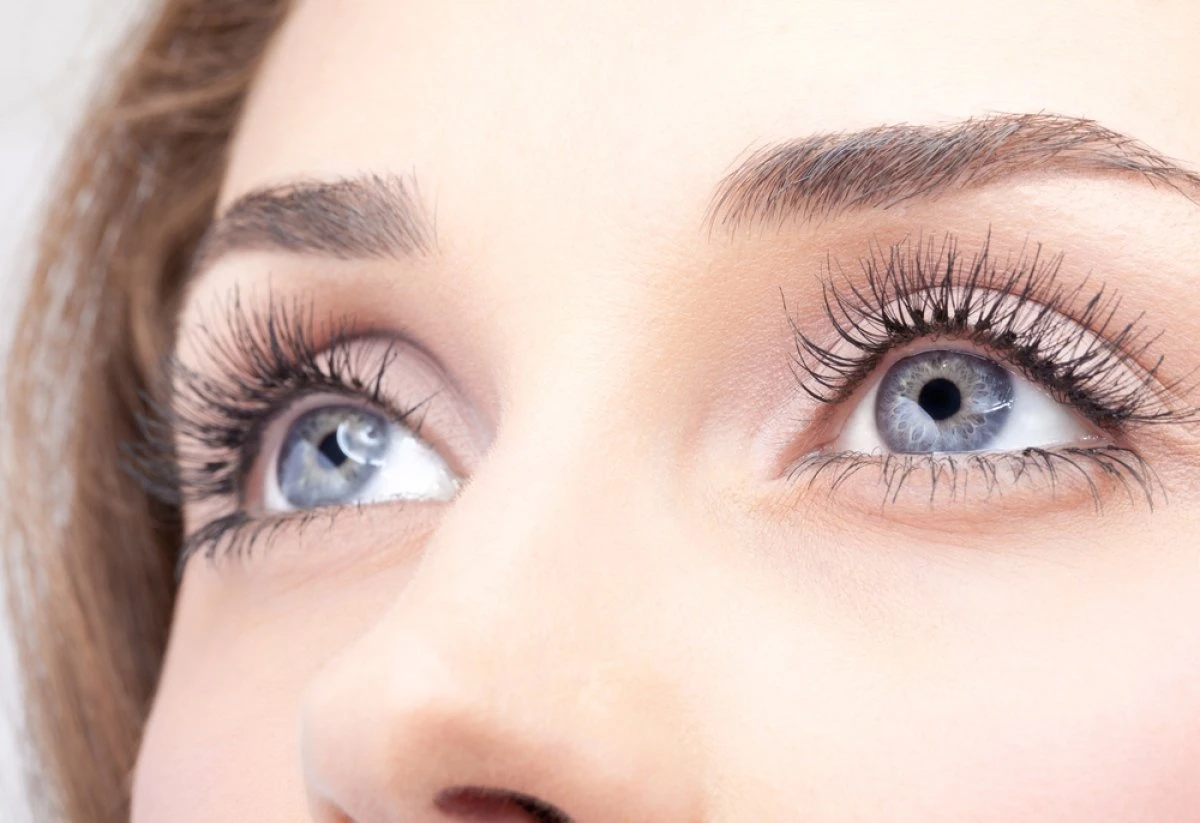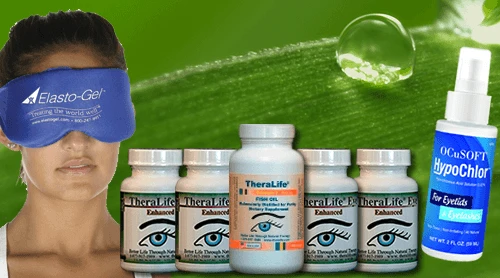Uveitis (UI) is an eye condition that causes painful inflammation of the uvea. It can involve a variety of factors, including autoimmune disorders and trauma to the eye.
The good news is that natural treatments are available for those who suffer from this disorder. In this article, we will explore how nature can help in soothing symptoms of uveitis and provide relief from its chronic pain.
The use of natural remedies to treat health conditions has been gaining popularity over recent years due to their effectiveness in providing relief without the long-term side effects of traditional medications.
Nature provides numerous options for treating various ailments, including uveitis. Natural approaches such as herbal supplements, diet modifications, massage therapy, yoga, meditation, and lifestyle changes may be beneficial in alleviating the symptoms associated with this condition.
We will examine each approach in more detail so individuals suffering from uveitis can find the most appropriate treatment plan.
Treat Your Dry Eyes to Control Uveitis With All Natural TheraLife That Works.
Add To Cart
Customer Stories
Understanding Uveitis
Uveitis is a condition that affects the eye and can cause discomfort, pain, and even vision loss. It occurs when inflammation of the uvea – which includes the iris, ciliary body, and choroid – causes damage to or blocks off essential blood vessels in the eye.
The immune system plays a significant role in how this condition manifests itself; thus, treating it with natural approaches can effectively address the root cause of its symptoms without invasive treatments like synthetic drugs or painful surgeries.
One such approach involves using herbal supplements as a comprehensive treatment plan. Herbal supplements offer potent antioxidants and other healing properties to reduce inflammation while also helping support overall health and wellness.
Eye drops are another vital tool in managing uveitis naturally. Many contain natural ingredients such as aloe vera extract or tea tree oil that work together to ease irritation and soothe swollen eyes. With regular application, these products can help reduce redness, blistering, itching, and burning sensations associated with uveitis flare-ups – without exposing patients to harsh chemicals in some traditional medications.
Herbal supplements provide another avenue for those seeking relief from their UI symptoms through natural means. By combining herbal remedies and specialized eye drops into one’s daily regimen, individuals affected by uveitis will likely find improved comfort levels and better long-term control over their disease process than they would get from conventional medical interventions alone.
Uveitis and Dry Eyes
Dry eye disease (DED) or keratoconjunctivitis sicca (KCS) is an autoimmune disorder of the ocular surface, affecting up to 35% of adults. Presented by inflammation of the ocular surface and involves conjunctiva, cornea, eyelids, meibomian glands, goblet cells, and lacrimal glands. The symptoms of DED are burning, itchy eyes that may become painful with progressive disease, which can lead to corneal ulceration, reduced vision, and, in some cases, even blindness.
Autoimmune uveitis is a non-infectious, T cell-mediated intraocular inflammatory disease comprising all parts of the eye. According to the affected anatomical sites of the eye, the classification of uveitis is anterior uveitis (AU, iritis, ciliary body), intermediate uveitis (peripheral retina, inflammatory cells in the vitreous), posterior uveitis (retina, retinal pigment epithelium, choroid, vitreous, papilla) or pan uveitis affecting all intraocular tissues. The symptoms of the disease are blurred and decreased vision, which can even lead to blindness. The destruction of the retinal architecture is irreversible but not painful. In contrast, in the often painful anterior type, the inflammation can sometimes resolve without damage to the ocular tissue. Long-lasting and severe intraocular inflammation can lead to sequels like glaucoma, cataract or cystoid macular edema, chorioretinal neovascularizations, or the formation of epiretinal membranes.
We concluded that DED and UI of any etiology could appear concomitantly in patients of any age. However, both diseases coexist more frequently in middle-aged women and cases of anterior uveitis. Therefore, it is crucial that ophthalmologists actively look for the coexistence of ocular surface abnormalities, especially in patients with these characteristics. Future studies should establish and quantify the risk factors and pathophysiological mechanisms of this coexistence to achieve an early diagnosis of both etiologies and comprehensive management of these patients.
Treat Your Dry Eyes to Control Uveitis With All Natural TheraLife That Works.
Add To Cart
Herbal Supplements
Herbal healing has been used for centuries to treat various ailments, including UI. Herbal remedies are widely available and offer different natural treatment options that meet the individual’s needs.
Common herbs used in treating uveitis include turmeric, ashwagandha, Boswellia serrata, ginger, and licorice root. Turmeric is an anti-inflammatory agent due to its active compound, curcuminoid, which has strong antioxidant properties. Ashwagandha helps reduce inflammation while also assisting with stress management. Boswellia serrata relieves joint pain associated with chronic inflammatory conditions such as uveitis. Ginger is known for its anti-inflammatory effects, aiding digestion and increasing circulation, while licorice root may help reduce swelling caused by an eye infection or irritation.
These herbal supplements can improve symptoms when taken over time; however, it is essential to note that they should not replace traditional medical treatments—advice from a qualified healthcare professional before starting any herbal remedy regime.
Next – dietary modifications could play a role in reducing symptoms associated with UI.
Dietary Modifications
Dietary modifications can help manage uveitis and improve eye health. Recent studies have found this theory to hold, suggesting that a holistic nutrition approach may relieve those suffering.
When it comes to managing and improving eye health with nutrition, there are several things you should consider:
– Include foods high in antioxidants, such as berries, leafy greens, nuts, and seeds.
– Increase your intake of omega-3 fatty acids through cold water fish or supplements like flaxseed or hemp seed oil.
– Eat plenty of whole grains and legumes, which provide vitamins and minerals for healthy eyesight.
– Reduce your consumption of processed foods, refined sugars, and trans fats, which can all contribute to inflammation in the body.
Making these small changes can make a big difference in soothing UI naturally. By focusing on eating more nutrient-dense foods while avoiding inflammatory triggers, individuals may experience improved eye health over time.
Massage Therapy
In addition to dietary modifications, massage therapy is another natural approach that can help treat uveitis. Massage therapy uses physical touch and pressure to increase circulation in the body while also helping to reduce inflammation and stress levels. Use it on its own or combined with other treatments like aromatherapy or acupressure for even more significant relief from symptoms associated with uveitis.
Aromatherapy is a massage therapy that uses essential oils extracted from plants, flowers, and herbs to reduce pain and stimulate relaxation. These essential oils are typically applied directly onto the skin during the massage session, which helps them penetrate deeper layers of tissue and release therapeutic benefits more quickly.
Acupressure is a similar form of massage technique. Instead, it focuses on stimulating specific points along meridian energy pathways to promote healing within the body’s organ systems.
Massage therapy effectively relieves many common symptoms associated with uveitis, such as headaches, fatigue, muscle tension, joint stiffness, and general discomfort. Additionally, it can improve sleep quality and provide an overall feeling of relaxation, contributing to managing this condition naturally.
With these potential benefits in mind, it is no wonder why many people turn to massage therapies to relieve their UI-related ailments. We will discuss how yoga and meditation may also benefit those looking for natural approaches for soothing uveitis.
Yoga And Meditation
Practicing yoga and meditation has been suggested as an effective form of treatment for UI. Research indicates that engaging in mindful breathing techniques and other relaxation practices can help reduce inflammation-causing stress hormones, thereby reducing the symptoms associated with UI.
Specifically, yoga postures such as Vajrasana or Padmasana are beneficial in relieving pain from eye conditions like UI. In addition, practicing mindfulness meditation helps improve focus and concentration while calming the mind, which is essential when dealing with any chronic inflammatory disease.
Mindful breathing exercises are also a great way to relax the body and reduce stress levels. Taking slow deep breaths through your nose promotes relaxation by allowing oxygen to reach all body parts freely. This controlled breathing will ease physical discomfort and help create mental clarity and emotional balance. Guided imagery or visualization techniques are simple yet powerful tools that can relieve tension headaches caused by prolonged periods of restricted vision due to UI flare-ups.
Research shows that combining various forms of Yoga and Meditation into one’s daily routine may bring about long-term improvements in overall health and well-being – including better sleep quality, improved moods, increased energy levels, enhanced immunity against infections, reduction in anxiety or depression-related issues – all of which contribute towards managing UI more effectively over time.
To reap maximum benefits from this ancient healing art form, practice regularly under the guidance of experienced instructors who understand how best to apply traditional methods suited for modern-day life situations. Moving forward – lifestyle changes should also be considered when treating uveitis naturally.
Lifestyle Changes
Regarding soothing uveitis with nature, lifestyle changes can be beneficial. Alternative therapies are a great starting point as they may relieve this condition’s symptoms. Such therapies include acupuncture and massage therapy, which can reduce inflammation in the body.
Environmental factors such as diet, stress reduction strategies, and exercise can manage uveitis naturally. Adjusting one’s diet is especially important for those suffering from uveitis since certain foods can trigger flare-ups or worsen symptoms. Eating anti-inflammatory foods rich in omega-3 fatty acids, like salmon, walnuts, and chia seeds, can help reduce swelling and pain associated with this condition.
In addition to dietary changes, incorporating relaxation techniques like deep breathing exercises and meditation can aid in reducing stress levels that may contribute to exacerbating the disease process. Exercise can improve overall health by strengthening muscles around joints affected by uveitis and helping maintain healthy circulation throughout the body.
Moving forward to managing uveitis requires exploring home remedies that may further benefit recovery from its effects. Taking proactive steps towards better self-care helps alleviate some of the discomfort caused by this disorder. It provides an opportunity for greater self-awareness and understanding of how these natural remedies work best for each individual’s unique situation.
Treat Your Dry Eyes to Control Uveitis With All Natural TheraLife That Works.
Add To Cart
Home Remedies
1. Herbal remedies have been used for centuries to treat various ailments, including uveitis.
2. Certain herbs, such as turmeric, licorice, and chamomile, offer anti-inflammatory properties that can help reduce the symptoms of uveitis.
3. Dietary changes can also have a positive effect on uveitis. A diet high in antioxidants and omega-3 fatty acids can reduce inflammation and pain associated with uveitis.
4. Stress reduction is an essential part of managing uveitis. Stress has been linked to increased inflammation and can worsen symptoms.
5. Stress reduction techniques such as yoga, meditation, and deep breathing can help reduce stress and improve symptoms.
6. Natural approaches such as herbal remedies, dietary changes, and stress reduction can help manage uveitis symptoms.
Herbal Remedies
Herbal remedies offer a natural approach to treating uveitis. Acupuncture therapy and aromatherapy oils are two therapies often used in healing the inflammation associated with this condition.
Research has shown that acupuncture can help reduce symptoms such as ocular pain, photophobia, lacrimation, and blurred vision.
Furthermore, certain essential oils possess anti-inflammatory properties, which may be beneficial for relieving discomfort caused by the disease. For instance, lavender oil is known to contain potent compounds that provide soothing relief from dryness and irritation of the eyes.
In addition, chamomile oil can relieve itching and burning sensation around the eye area when applied topically.
Therefore, these herbal remedies may prove effective in providing some degree of comfort for patients suffering from uveitis. By combining these treatments with other lifestyle changes, such as eating healthily and getting adequate rest, individuals with this condition can benefit significantly from using natural approaches to manage their symptoms and improve overall well-being.
Diet Changes
In addition to the herbal remedies discussed, diet modifications can be critical in helping individuals manage their uveitis symptoms.
For instance, a diet rich in immune-boosting foods such as fruits and vegetables may help reduce inflammation and boost overall health.
Furthermore, avoiding food allergens and incorporating anti-inflammatory ingredients into meals may be beneficial for controlling flare-ups associated with this condition.
Moreover, certain dietary supplements like fish oil have strong anti-inflammatory properties, which may aid in reducing swelling around the eyes caused by the disease.
Additionally, probiotics support healthy gut flora, which could further improve digestion and immunity.
Therefore, making specific changes to one’s daily eating habits may prove effective in relieving uveitis and its related symptoms.
With careful consideration of individual needs and preferences, these dietary adjustments can promote better health outcomes over time.
Stress Reduction
Stress reduction is another essential home remedy for individuals suffering from uveitis.
Studies have shown that stress can exacerbate symptoms of this condition, and therefore it is essential to maintain a healthy balance between work and rest to reduce the strain on the body.
Acupuncture therapy has been used as an effective way to alleviate mental tension and help people achieve a sense of calm.
Additionally, getting adequate restorative sleep every night is essential in reducing stress levels associated with uveitis.
Insufficient sleep can weaken the immune system, leading to frequent flare-ups.
Therefore, creating a routine of relaxation techniques such as meditation or yoga alongside proper sleeping habits can be beneficial in managing symptoms related to this disease over time.
Treat Your Dry Eyes to Control Uveitis With All Natural TheraLife That Works.
Add To Cart
Professional Treatment Options
Uveitis is a complex condition that requires professional treatment for long-term management. While natural remedies can be soothing and helpful, they are not to replace the care of an ophthalmologist or other health care provider. Professional options such as medication, surgery, physical therapy, mental health counseling, and lifestyle modifications are all recommended.
Traditional treatments include topical medications used to reduce inflammation in the eye due to infection or injury. Corticosteroids have powerful anti-inflammatory properties. Drugs like cyclosporine effectively treat uveitis by suppressing the immune response responsible for causing it.
In some cases, laser surgery may be necessary to remove scar tissue from within the eye or fix structural damage caused by uveitis. In addition to traditional medical treatments, physical activity and targeted mental health interventions can also help manage uveitis symptoms over time. Exercise improves overall mood and reduces stress levels while promoting healthy vision habits such as eating nutrient-dense foods and sleeping well each night.
Mental health counselors specializing in chronic illness can provide strategies for coping with pain associated with uveitis flare-ups or developing better ways of dealing with depression or anxiety related to this condition. Ultimately, finding a comprehensive approach tailored to one’s needs will ensure positive outcomes when treating uveitis naturally and professionally.
Frequently Asked Questions
What Are The Long-Term Effects Of Uveitis?
Uveitis is an inflammatory eye condition that can lead to long-term effects if left untreated. These may include vision loss, cataracts, glaucoma, and retinal detachment.
Acupuncture is beneficial in treating uveitis due to its anti-inflammatory properties, while light therapy can help slow down any progression or further damage caused by the condition.
Although these natural methods have proven effective for some people with uveitis, seeking medical advice as soon as symptoms arise is vital so that a proper diagnosis and treatment plan can manage the condition before permanent damage occurs.
What Are The Potential Side Effects Of Herbal Supplements For Uveitis?
The potential side effects of herbal supplements for uveitis can lead to a winding road full of unexpected twists and turns.
While there is a chance for relief from this condition with acupuncture, lifestyle changes, and other natural approaches, some individuals might experience adverse reactions that could lead to further complications.
Common side effects may include drug interactions, allergic reactions, or stomach discomfort; more severe issues like liver damage can result in rare cases.
Therefore it’s crucial to speak with an experienced healthcare provider before beginning any form of complementary therapy for managing uveitis.
What Is The Best Diet To Follow For Uveitis?
The best diet for those with uveitis- is a variety of whole foods, such as fruits and vegetables.
Foods high in omega-3 fatty acids are beneficial for reducing inflammation, so including fish or other sources of these healthy fats can be helpful.
Additionally, limiting processed sugars and refined carbohydrates can help reduce the symptoms of this condition.
Exercise types like yoga, tai chi, and qigong can effectively manage stress levels which also helps reduce flare-ups related to uveitis.
How Often Should Massage Therapy Be Used For Uveitis?
Massage therapy is a powerful, natural approach to treating uveitis and its accompanying symptoms.
To maximize the acupuncture benefits of massage therapy – do it regularly – ideally two or three times per week for best results.
In addition to massage techniques, meditation can also help manage stress levels caused by uveitis; relaxation techniques such as deep breathing exercises may relieve the pain associated with the condition.
Effective massage therapy and other natural health approaches could make a remarkable difference for those experiencing chronic uveitis.
Are There Any Exercises That Can Be Done To Help Relieve Uveitis Symptoms?
Heat therapy and acupuncture points may be beneficial in relieving symptoms of uveitis.
Heat therapy can involve applying a warm compress to the affected area for 10-15 minutes several times daily or taking a warm bath with Epsom salts.
Acupuncture is another option that involves stimulating specific points on the body with needles which can reduce inflammation, improve circulation and promote relaxation.
Exercises such as stretching, yoga, and tai chi can manage pain and reduce stress levels associated with uveitis.
Treat Your Dry Eyes to Control Uveitis With All Natural TheraLife That Works.
Add To Cart
Conclusion
Uveitis, if left untreated, can lead to long-term damage to the eye and vision loss.
Fortunately, natural methods help soothe this condition, such as herbal supplements, diet modifications, massage therapy, and specific exercises.
These approaches may effectively relieve symptoms while avoiding potential side effects associated with conventional treatments.
Thus, it is vital for those suffering from uveitis to understand the benefits of using nature-based therapies to treat their condition.
By utilizing these natural strategies, individuals can reduce discomfort and protect their eyesight over time; ultimately making them guardians of their health.





